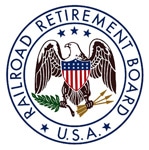 The amounts of compensation subject to railroad retirement tier I and tier II payroll taxes will increase in 2014, while the tier I and tier II tax rates will remain the same on both railroad employers and employees, the Railroad Retirement Board announced. Also, railroad unemployment insurance contribution rates paid by employers will not include a surcharge in 2014.
The amounts of compensation subject to railroad retirement tier I and tier II payroll taxes will increase in 2014, while the tier I and tier II tax rates will remain the same on both railroad employers and employees, the Railroad Retirement Board announced. Also, railroad unemployment insurance contribution rates paid by employers will not include a surcharge in 2014.
The railroad retirement tier I payroll tax rate on covered rail employers and employees for the year 2014 remains at 7.65 percent. The railroad retirement tier I tax rate is the same as the social security tax, and for withholding and reporting purposes is divided into 6.20 percent for retirement and 1.45 percent for Medicare hospital insurance. The maximum amount of an employee’s earnings subject to the 6.20 percent rate increases from $113,700 to $117,000 in 2014, but there is no maximum on earnings subject to the 1.45 percent Medicare rate.
An additional Medicare payroll tax of 0.9 percent applies to an individual’s income exceeding $200,000, or $250,000 for a married couple filing a joint tax return. While employers will begin withholding the additional Medicare tax as soon as an individual’s wages exceed the $200,000 threshold, the final amount owed or refunded will be calculated as part of the individual’s Federal income tax return.
The railroad retirement tier II tax rate on employees will remain 4.4 percent in 2014, and the employers’ rate will stay at 12.6 percent. The maximum amount of earnings subject to railroad retirement tier II taxes will increase from $84,300 to $87,000 in 2014. Since 2004, tier II tax rates are based on an average account benefits ratio reflecting railroad retirement fund levels. Depending on this ratio, the tier II tax rate for employees can be between 0 percent and 4.9 percent, while the tier II rate for employers can range between 8.2 percent and 22.1 percent.
Employers, but not employees, pay railroad unemployment insurance contributions, which are experience-rated by employer. The Railroad Unemployment Insurance Act also provides for a surcharge in the event the Railroad Unemployment Insurance Account balance falls below an indexed threshold amount. The accrual balance of the Railroad Unemployment Insurance Account was $204.2 million on June 30, 2013. Since the balance exceeded the indexed threshold of $144.8 million, no surcharge applies to the basic contribution rates for 2014. There was also no surcharge in 2013, although a surcharge of 1.5 percent applied in 2012.
As a result, the unemployment insurance contribution rates on railroad employers in 2014 will range from the minimum basic rate of 0.65 percent to the maximum of 12 percent on monthly compensation up to $1,440, an increase from $1,405 in 2013.
In 2014, the minimum rate of 0.65 percent will apply to 79 percent of covered employers, with 9 percent paying the maximum rate of 12 percent.
During the year, new employers will pay an unemployment insurance contribution rate of 4.53 percent, which represents the average rate paid by all employers in the period 2010-2012.
Related News
- Senate Passes Tax Bill Without Including Railroaders
- Yardmaster Protection Act Introduced
- New College Education Benefit Available for SMART-TD Members and Their Families
- Arkansas & Missouri Begins a New Chapter with SMART-TD
- In Loving Memory of Brother Darryl Redmon
- Update Your SMART Union Mobile App Today!
- Alabama Port Authority learns a lesson in solidarity
- In Loving Memory of Donald H. Wolff II
- Railroad Safety Day on the Hill 2025
- Victory in Colorado: SMART-TD Secures Permanent Funding for the Office of Railroad Safety